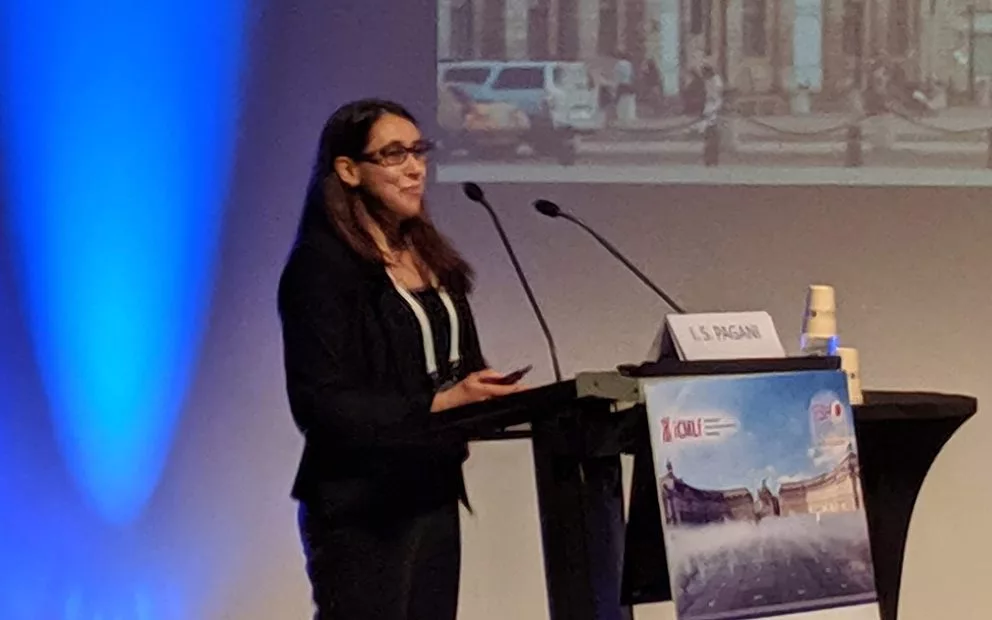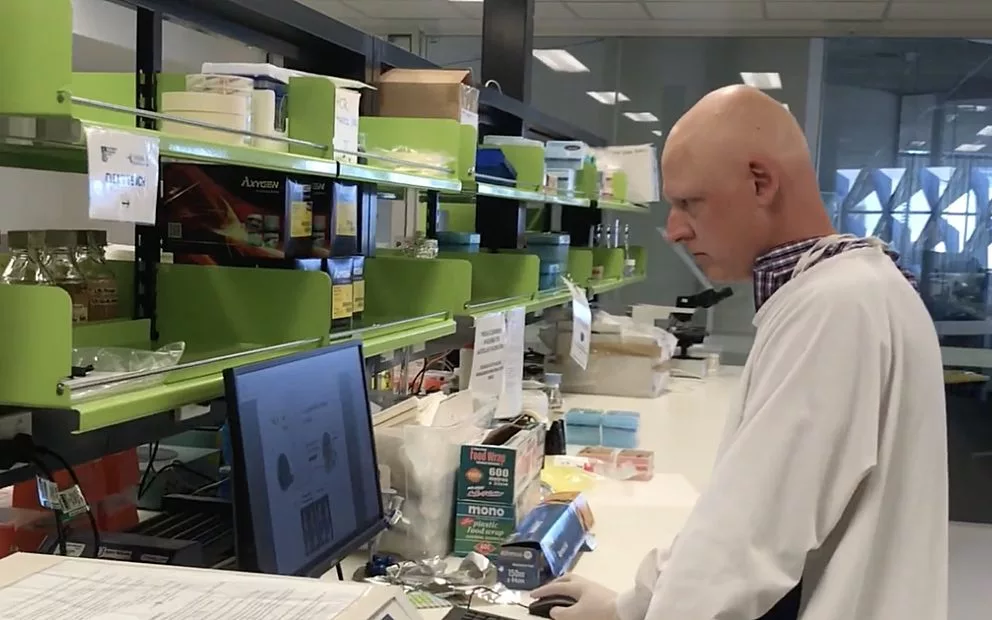A novel proposal for machine learning to help people with chronic myeloid leukemia (CML) has earned SAHMRI’s Dr Ilaria Pagani the first annual John Goldman Award from the European School of Haematology.
Dr Pagani beat an international field of 29 applicants from 14 countries for the award, which provides funding for projects that improve the probability of successful treatment free remission (TFR) and thus improve healthcare standards for CML patients.
“It is an honour and a pleasure to be the first John Goodman Research Prize awardee,” Dr Pagani said.
“It represents a critical step in my career towards becoming an independent investigator and provides the opportunity to build new collaborations.”
As recently as late last century, outcomes for CML patients were typically poor. That changed with the discovery that drugs called tyrosine kinase inhibitors (TKIs) could stop, and even reverse, the cancer’s development.
“Despite the improvement in outcomes, approximately 20 per cent of CML patients are resistant to potent TKI therapy or develop fatal blast crisis,” Dr Pagani said.
“Also, there is a perception that CML has been cured, but most patients have a lifelong dependency on TKI-therapy, with associated costs and toxicity that affects their quality of life.”
Some patients react well to therapy, achieving a state called deep molecular response (DMR), where the cancer is barely detectable in their blood. After two years of DMR selected patients can stop taking TKIs however only around 50 per cent achieve treatment free remission (TFR). The other half need to restart therapy, which can lead to emotional and physical trauma that potentially delays their ultimate achievement of TFR.
This is where Dr Pagani’s research comes into play.
“There is a need to maximise the number of patients who can safely cease TKI-therapy, achieving TFR,” she said.
“The aim of my project is to develop a personalized-predictive model leading to a targeted therapy to maximise the number of patients achieving TFR through the identification of specific biomarkers.”
The use of artificial intelligence (AI) will allow computers to analyse large sets of clinical and patient data, all the while adjusting their predictions based on the increasing volume of data being fed into the algorithm. This will deliver increasingly accurate predictions of each patient’s likelihood of successfully achieving TFR.
Dr Pagani was presented with the award, which brings with it €80,000 for research, at the recent John Goldman Conference on CML: Biology and Therapy in Bordeaux.
Her project Use of machine learning to integrate clinical data and biomarkers to optimise prediction of TFR is being run with collaboration from Dr David Ross, Professor Tim Hughes, Associate Professor Agnes Yong, Associate Professor Susan Branford, Dr Chung Kok, Dr Naranie Shanmuganathan, Dr Tamara Leclercq and Dr Yazad Irani.



